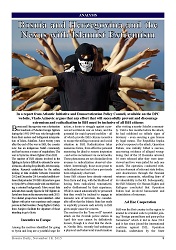
DPC BOSNIA DAILY: Bosnia and Herzegovina and the Nexus with Islamist Extremism
Bosnia Daily: November 18, 2015 – Bosnia and Herzegovina and the Nexus with Islamist Extremism
More...We kindly inform you that, as long as the subject affiliation of our 300.000+ articles is in progress, you might get unsufficient or no results on your third level or second level search. In this case, please broaden your search criteria.

Bosnia Daily: November 18, 2015 – Bosnia and Herzegovina and the Nexus with Islamist Extremism
More...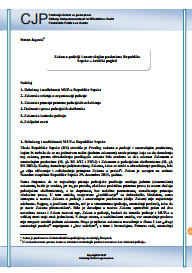
Po obuhvatu materije Zakon o policiji i unutrašnjim poslovima jeste bazični zakon za policiju koji predstavlja kompilaciju dva zakona - prethodnika: Zakona o unutrašnjim poslovima (Sl. gl. RS 4/12 i 33/14) i Zakona o policijskim službenicima (Sl. gl. RS 20/14). Budući da se materija prethodnih i ovog zakona poklapa i da su najvažniji instituti i ovlašćenja uređeni istovetno kao i prethodnim zakonima, nije reč o nekakvom novom zakonskom okviru. U nomotehničkom smislu Zakon ima nedopustivo mnogo redaktorskih propusta. On ne samo da je usvojen po hitnom postupku, već izgleda da je tako i pisan, s obzirom na sistematiku, jezik i kvalitet odredaba. Pravi razlog njegovog donošenja po hitnom postupku, čini se nije, kako se predstavlja u obrazloženju Predloga zakona, „sprečavanje štetnih posledica po bezbjednost Republike i rad organa i organizacija koje bi nastale zbog nedonošenja zakona po hitnom postupku“, što predstavlja zgodne fraze za prikrivanje drugih razloga, koji su verovatno vanpravne (političke) prirode. U sadržinskom smislu Zakon u osnovi, znači ne sasvim, bez obzira na sve propuste i manjkavosti predstavlja delotvoran pravni okvir za obavljanje pre svega policijskih poslova. Policijski poslovi obavljaju se primenom policijskih ovlašćenja koja su expressis verbis utvrđena Zakonom, ali je način njihove primene samo delimično uređen Zakonom. To je i glavna zamerka ovom zakonu. Budući da je Zakon rađen u brzini, sumarno iskazano konkretne primedbe su sledeće: Prvo, naziv zakona je pleonastičan, jer su policija i MUP (unutrašnji poslovi) sinonimi u našem jeziku. Drugo, organizacija policije RS uređena je samo načelno Zakonom, u celosti Pravilnikom o unutrašnjoj organizaciji i sistematizaciji, stoga nije vidljiva, a između Zakona i Pravilnika nije predviđeno specijalno ovlašćenje Vlade da propisom utvrdi posebna načela za organizaciju MUP-a. Na taj način „organizaciona“ vlast ministra bila bi ograničena propisom Vlade. Treće, trebalo je ograničiti mogućnost kandidovanja istog lica za direktora policije na najviše dva mandata radi sistemskog izbegavanja personalizovanja funkcije posebno u miljeu još nedovoljno konsolidovanog demokratskog sistema. Četvrto, pravni principi primene policijskih ovlašćenja šturo su uređeni, principi oportuniteta i supsidijarnosti su izostavljeni, dok je srazmernost trebalo podrobnije urediti. Peto, policijska ovlašćenja utvrđena su za obavljanje pojedinih, navedenih policijskih poslova, a ne svih, tako da se primera radi, ne mogu primenjivati za obavljanje poslova zaštite bezbednosti RS. Šesto, policijsko ovlašćenje prikupljanje obaveštenja formulisano je bez zakonskih ograničenja, odnosno nije utvrđen krug krivičnih dela i prekršaja da bi se sprečila prekoračenja ovlašćenja. Sedmo, policijsko ovlašćenje privođenja može trajati najduže 24 časa, što suštinski predstavlja zadržavanje lica, bez mogućnosti pravne zaštite od strane suda. Osmo, način primene i ograničenja policijskog ovlašćenja poligrafskog (psihofiziološkog) ispitivanja nije uređen Zakonom. Deveto, policijska ovlašćenja prinude (sile) samo delimično su regulisana Zakonom, nisu utvrđena ograničenja pojedinih sredstava sile, već je to ostavljeno da se bliže uredi podzakonskim propisom, što je zastareo pristup, a uz to, nije i pravno valjan. Deseto, Zakonom nije predviđen institucionalni nosilac unutrašnje kontrole policije, koji treba da je snabdeven policijskim ovlašćenjima. Zakonom je predviđen samo Biro koji nema te (policijske) nadležnosti, već nadzire sprovođenje disciplinske odgovornosti i obaveštava građane o ishodu postupka rešavanja predstavki. Naposletku, nepreciznom i nejasnom raspodelom nadležnosti između predsednika Republike i Vlade u sferi unutrašnjih poslova stvoren je potencijal za konflikte između dve glave egzekutive, posebno u situacijama kada su oni različitih političkih orijentacija u periodima kohabitacije. Osim toga, nedovoljno dobra kordinacija postupanja predsednika Republike i Vlade može za posledicu da ima i nedelotvoran rad policije, a što je još opasnije i blokadu njenog rada. Kvalitet ovog zakona oceniće vreme njegovog važenja i kapacitet primene. Pravilo je da se dobri zakoni dugo primenjuju, a oni loši menjaju se odmah po donošenju, a najlošiji, preuzeti i „pozajmljeni“, koji ne odgovaraju društvenim uslovima i ne otpočnu nikad život, ostaju mrtvo slovo na papiru. Činjenica je da su nomotehnički propusti, nepažnja, nemar, pokatkad i čini se namerne nedorečenosti u formulisanju odredaba u Zakonu prosto „stil“ ovog zakona, čime policija kao institucija i građani nisu dobili pažnju kakvu zaslužuju. Tako je propuštena prilika da se u pravom smislu reči donese novi, osavremenjen zakon.
More...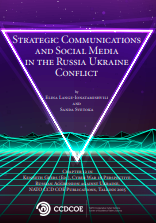
Elina Lange-Ionatamishvili and Sanda Svetoka of the NATO Strategic Communications Centre of Excellence in Latvia, in Chapter 12, discuss the role of social media in this conflict. In the Internet era, the battle for hearts and minds has never been more important. Social media is a trust-based network that provides fertile soil for intelligence collection, propaganda dissemination, and psychological operations (PSYOPS) to influence public opinion – or to lead adversaries into harm’s way. ‘Soft’ cyber attacks can be as severe as any attack on critical infrastructure. In Ukraine, they have generated fear, uncertainty, and doubt about the economic, cultural, and national security of Ukraine, while promoting positive messages about Russia’s role in Crimea and eastern Ukraine. The authors provide recommendations for defence against such attacks, including how to identify them, challenge them, and how to develop a resilient political narrative to withstand false propaganda.
More...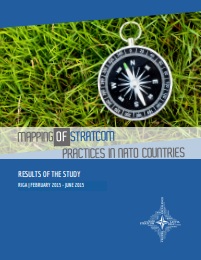
“There is a curious dichotomy concerning StratCom in the NATO Alliance and in its membership nations. The term occupies an inordinately larger space in verbiage and documents than the function is given in the environments in which it is has the most potential to effect. This most recent study not only re-affirms previous results but more importantly, attempts to add to them by seeking to get to the “why”. While it does get to the “why”, the integrity of the results is somewhat diminished by the disappointing level of national participation with only 11 of 28 nations responding. For a function often on the lips of leadership -- both in the Alliance and its nations -- it is rather telling that 17 nations passed over the opportunity to illuminate the function and contribute to the discussion. Nevertheless, the report builds on the baseline understanding of how Allied nations define, organise and implement the StratCom function, and the results are as encouraging as they are concerning. Concerning because the author found that many responding nations still consider Strategic Communication to essentially be another name for what they formerly termed Public Affairs. Encouraging because the authors found that many nations acknowledged that the StratCom function needed to change from a supporting to a supported role – an understanding which is finding traction amongst experienced operators. Having previously written a paper which included Alliance nation mapping with respect to StratCom, I welcome this report for updating and contributing more to NATO’s understanding about how its membership individually considers StratCom. It gives needed insight into NATO policy development on behalf of all nations.”
More...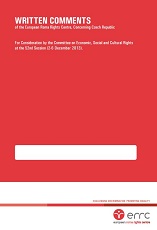
This list of critical issues with background information is presented by the European Roma Rights Centre (ERRC) for consideration by the Human Rights Committee at its 112th Session (07-31 Oct 2014). It contains country-specific information on issues affecting Roma in Macedonia that raise questions under the International Covenant on Civil and Political Rights (ICCPR). The Republic of Macedonia has 2,022,547 inhabitants, of whom 53,879 (2.66%) have declared themselves Roma. However, the available unofficial estimate for Roma is 135,490 (6.77%). Roma live in 75 out of 85 municipalities across the country. According to official data, the majority of Roma live in the capital, Skopje (23,475), with 56% of Skopje’s Roma concentrated in the municipality of Šuto Orizari (13,342).
More...
Anonymous users stole the show this quarter. Never before have we observed such high levels of activity from anonymous accounts. At the same time, bot activity in Russian-language conversations about NATO activity in the Baltics and Poland has emerged from its winter slumber. In the wake of the Skripal poisonings in the UK in March, Russian-language bot and anonymous activity about NATO more than doubled. Mentions of NATO on VK, in contrast, have been stable and declining during the whole period. Social media companies are working to end platform misuse. But malicious activity is evolving. Today, anonymous accounts are dominating the conversation. These accounts are either operated manually, or they have become advanced enough to fool human observers. The responses from open and free societies to the problem of online malicious activity have neither been strong enough, nor consistent enough. Figures presented in this issue reveal a disparity between the conversation quality in English and Russian-language spaces. Currently, the Russian-language conversation about NATO in the Baltics and Poland has six times the proportion of content from bot and anonymous accounts. As Twitter has taken steps to remove bots, the disparity has only widened. We assess that 93% of Russian-language accounts in our dataset are operated anonymously or automatically. In no way does this conversation mirror opinions of citizens. Journalists, policy makers, and advertisers take note!
More...
This report presents top-level findings from the first research project to systematically track and measure the scale of inauthentic activity on the Russian social network VK. On VK, a vocal core consisting of loyal news media, pro-Kremlin groups, and bots and trolls dominates the conversation about NATO. The volume of material from this core group is such, that overall genuine users account for only of 14% of the total number of messages about NATO in the Baltic States and Poland. The spread of demonstrably fake content can offer a starting point for measuring how social media manipulation impacts genuine conversations. In the case of one story about a fictitious Finnish blogger, our algorithm estimates that at least 80% of users who shared the fake story were authentic. This quarter, messages appeared in more than 2 000 different group pages on VK. Setting aside messages from group pages, 37% of VK posts came from ‘bot’ accounts—software that mimics human behavior online. This level of activity is comparable to what we have seen on Russian-language Twitter. Unlike on Twitter, where the vast majority of human-controlled accounts are operated anonymously, on VK most accounts are likely to be authentic. Western social media companies have belatedly taken an active role in reducing the reach of the Kremlin’s social media manipulation efforts. However, it remains hard for researchers to evaluate the effectiveness of these measures on platforms such as Facebook and Instagram. In this context, VK offers a cautionary view of a network with minimal privacy, regulation, and moderation.
More...
President Trump’s whirlwind tour of Europe in July provoked ferocious discussion about NATO on social media. Anonymous human-controlled English-language accounts, expressing positions in support of or in opposition to the US President, dominated online conversations. Compared to the levels observed in the Spring issue of Robotrolling, the volume of English-language messages has more than doubled. The increasing proportion of anonymous accounts active during key political moments indicate that anonymity is being abused to cloak manipulation on social networks. We call on social media companies to keep investing in countering platform misuse. The social media companies Reddit and Twitter have released lists of accounts identified as originating from the notorious St Petersburg ‘troll factory’—the Internet Research Agency (IRA). In this issue, we present the first quantitative analysis comparing English- and Russian-language posts from these accounts. The IRA bombarded citizens in Russia and its neighboring states with pro-Kremlin propaganda. For English, fake accounts posed as Trump supporters, and argued both sides of the Black Lives Matter controversy. Russian-language material closely echoed and amplified the narratives popularized by Russian state-media. Amongst the accounts identified by Twitter, 26 also posted about NATO in the Baltics and Poland. Our algorithm correctly identified 24 of these as bot accounts. The other two accounts were anonymous human-controlled (troll) accounts.
More...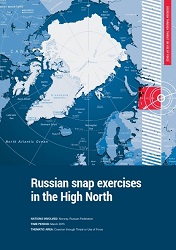
On 16 March 2015 the Russian Federation began a combat readiness test (a ‘snap exercise’) of its Northern Fleet and force elements situated in its Western Military District. The scale of the exercise was much larger than originally announced, and coincided with the Norwegian exercise Joint Viking in Finnmark (the northernmost part of Norway), as well as with the US exercise Dragoon Ride. Since both exercises were announced well ahead of time, it is reasonable to assume that the Russian exercise was intended as a defensive move and/or response to them. There remains considerable debate as to whether the readiness exercise violated the Vienna Document, a confidence and security-building measure agreed upon with the OSCE. Norway stated at the time that it was monitoring the situation, and did not submit a complaint to the OSCE. However, the consistent use of such snap exercises to circumvent requirements for notification runs counter to the spirit of the agreement and undermines its provisions.
More...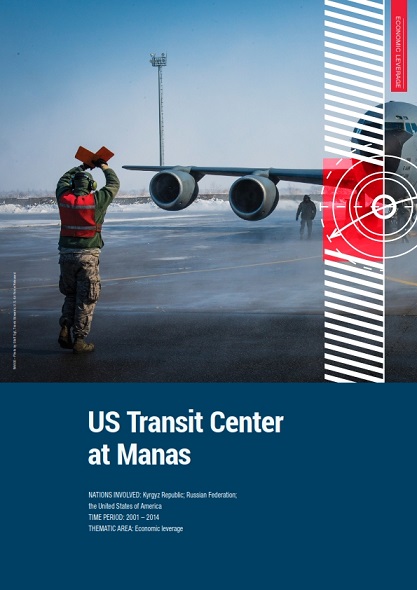
In 2001, the United States established a strategic air base at the Manas International Airport in Kyrgyzstan to support its military operation in Afghanistan. In return, Kyrgyzstan received at least USD 318 million in direct investment and additional indirect financial and non-financial benefits from the US. Russia, however, was wary of a long-term US military presence in the region, and tried to exert pressure on Kyrgyzstan to close the Transit Center. The Russian government made generous offers of financial and economic assistance, while simultaneously exerting diplomatic pressure on the Kyrgyz government. The Russian media focused extensively on supposed negative impacts of the Transit Center at Manas. Russian pressure on Kyrgyzstan would likely have been much stronger from the beginning, had it not been for the US-Russian dialogue in the wake of the Global War on Terror (2001) and the US-Russian grand ‘reset’ attempt (2009). Kyrgyz public opinion grew increasingly critical of the US military presence in the country. Using increasing Russian pressure and growing anti-American public opinion in Kyrgyzstan as bargaining chips, the Kyrgyz government managed to considerably increase US payments. The Transit Center at Manas (TCM) was eventually closed in 2014.
More...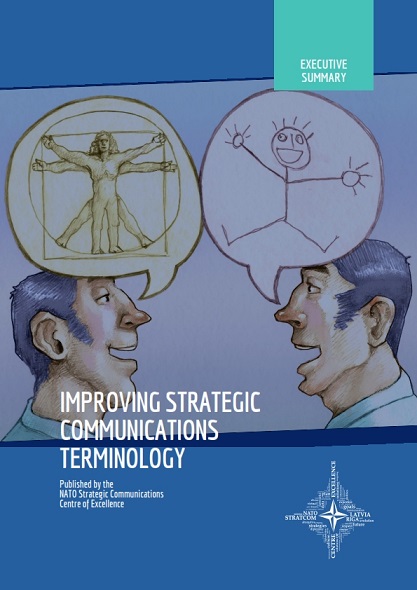
The world is experiencing political turbulence. Buzzwords hijack political discourse, preventing, rather than enabling, meaningful critique and discussion. In this contested space it is imperative that NATO member states communicate between themselves in the most precise, efficient, and frictionless way and strengthen the alliance’s understanding and application of Strategic Communications. In October 2017 the Netherlands, one of the NATO Strategic Communications Centre of Excellence (StratCom COE) founding nations, requested a Strategic Communications terminology review project. Over the past year a team of StratCom COE and external experts have been working to streamline and improve the language used in the StratCom community at NATO.
More...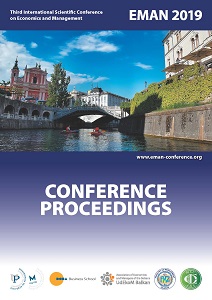
Ovaj rad bavi se razvojem privatne bezbjednosti i njene društvene uloge u sistemu odbrane sa posebnim osvrtom na odnosu privatne bezbjednosti i sistema odbrane kao najznačajnijeg dijela sistema nacionalne bezbjednosti. U istraživanju posebno je istaknuta mogućnost i potreba angažovanja privatnih bezbjednosnih kompanija kao privrednih subjekata u sistemu odbrane. U radu autori nastoje da daju odgovore na više pitanja: razvoj privatnih bezbjednosnih kompanija, njihovo normativno uređenje i angažovanje u sistemu odbrane. Posmatrano sa istorijskog aspekta, bezbjednost je oduvijek bila djelatnost kojom su se, uglavnom, bavile državne institucije (policija, vojska i obavještajno bezbjednosne službe). Usložavanje poslova državne uprave, povećanje preduzetničkih aktivnosti, kao i ograničeni kapaciteti državnog bezbjednosnog sektora za kvantitativno uvećan, a kvalitativno sve različitije lepeze bezbjednosnosnih zadataka, dovelo je do pojave i profilisanja različitih subjekata-oblika privatne bezbjednosti. Privatne bezbjednosne kompanije pored obezbjeđenja privatnog kapitala našle su svoje mjesto i u državnim organima (zaštitarski, i drugi stručni poslovi) ili se radi o poslovima od posebnog značaja za bezbjednost i odbranu.
More...
Ovih dana smo dobili dve naizgled nepovezane informacije. Dva policajca su uhapšena zbog sumnje da su odali službenu tajnu istupom u javnosti u oktobru 2016. godine; doneta je i presuda kojom je ministru unutrašnjih poslova dosuđena naknada nematerijalne štete od 300.000 dinara. Potonje je uzrokovano (sada već sudski utvrđenom) povredom ugleda ministra Stefanovića od strane nedeljnika NIN, koji ga je u junu 2016. nazvao glavnim fantomom iz Savamale. Oba događaja su ipak povezana ne samo time što se tiču policije, već i zato što daju jasan odgovor na pitanje – šta se dešava onome koji se drzne da progovori o nepostupanju i nezakonitom postupanju unutar policije?
More...
The paper examines what effect the KiberPajzs initiative has on fraud detected in electronic payments in Hungary for the 2023-2024 period. First the current electronic payment fraud landscape of Hungary is described through cybercrime tendencies, the impact of digitalization on banking, and the regulatory background of electronic payments. Then the KiberPajzs initiative is introduced together with its related communicational, regulatory and law enforcement projects. Finally, the recent quarterly payment fraud data published by the Central Bank of Hungary is examined and the effects of KiberPajzs are evaluated. The author argues that the decrease in the number and value of fraudulent electronic transactions and the increase in identified failed fraud attempts coincide with the activities of the KiberPajzs initiative.
More...
AR-in-a-Box, developed by the European Union Agency for Cybersecurity (ENISA), offers a comprehensive framework to guide organisations in creating effective cybersecurity awareness programs. Through a structured 8-step process, this toolkit helps organisations set objectives, secure resources, manage human capital, segment audiences, select communication tools, plan timelines, implement programs, and evaluate outcomes. This paper explores each step in detail, incorporating state-of-the-art research and real-world case studies to demonstrate AR-in-a-Box's effectiveness in fostering a cybersecurity-conscious culture. Through targeted communication, interactive elements, and performance metrics, AR-in-a-Box enables organisations to embed cybersecurity awareness and improve resilience against evolving cyber threats.
More...
In an age where most of the data we interact with daily is stored digitally, methods of checking its authenticity become more and more essential. This is especially true for sound, as the increasing public availability of AI models makes tampering with audio files easier than ever. In this paper, we will be investigating the current landscape of audio forensics as well as our new hardware-based solution for double encoding detection.
More...
Black and white barcodes have been employed recently to encode additional data inside of a designated area. A barcode is composed of gaps and bars that are ordered according to preset rules. However, as the demand for additional data storage increases, a new technology known as QR codes has been developed. However, security remains a major worry, so this is by no means the end. Mobile payment is necessary for mobile business. An easy-to-use mobile payment solution is needed to allow mobile users to execute transactions using their mobile devices in a reliable and safe manner. The purpose of this study is to give us dynamic QR code refreshes during financial payment. The paper's primary goal is to create and comprehend QR code technology in the context of today's global security environment.
More...
The rising number of vulnerabilities, highlights the growing cybersecurity challenges and the need for robust vulnerability management. This paper examines the role of Artificial Intelligence in enhancing vulnerability detection and management, focusing on scalable and accurate solutions to address large-scale codebase analysis. AI-driven techniques bridge traditional static analysis and advanced detection, uncovering hidden vulnerabilities and improving efficiency. Future research should optimize these tools for diverse languages, Secure Software Development Life Cycle workflows, and predictive threat analysis. These advancements highlight AI's potential to strengthen software security in an increasingly complex threat landscape.
More...
Ensuring a high level of security of the networks and IT systems that underpin the delivery of an organization's essential services has become a necessity that involves integrated, comprehensive approaches, the adoption of new and permanent cyber security strategies, significant financial investments and rapid organizational adaptations and ambitious. This article aims to provide a comprehensive analysis of the cyber security of a distributed computer network within an organization. In this context, the article promotes the implementation of proactive tools to strengthen cyber security at the institutional level.
More...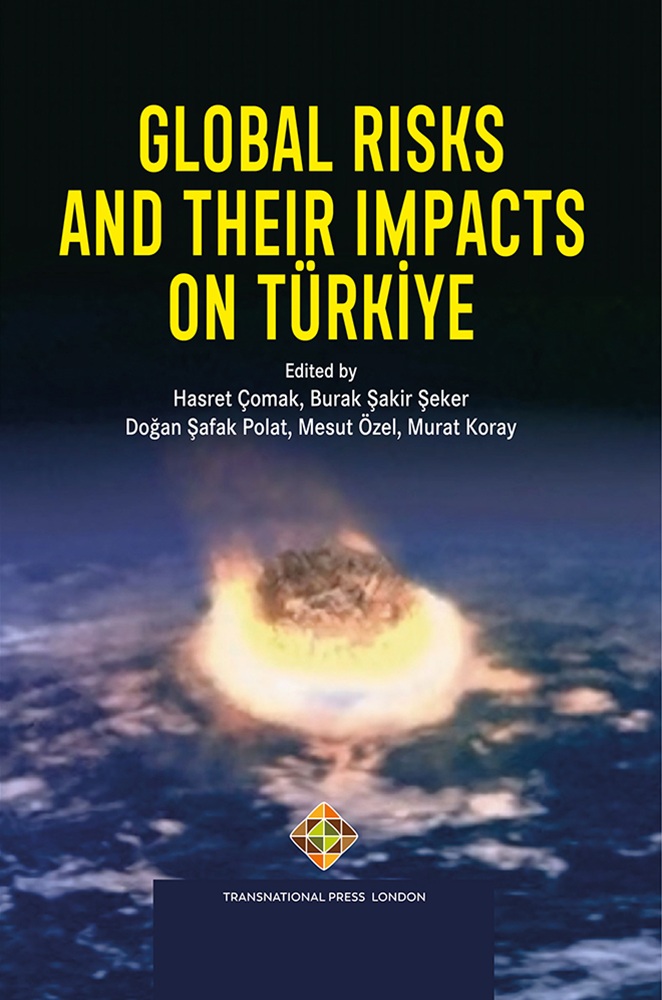
Cyber insecurity is relatively a new term in cyber studies. Cybersecurity is a term that gained a popular usage in the 1990s with the proliferation of the use of the internet and computer systems. Cyber insecurity is more of a term introduced in the beginning of the new millennium with a rise of global cyber threats and cyber-attacks. The cyber-attack on Estonia in 2007 following the ‘Bronze Soldier’ protests in Tallinn is considered as a milestone in terms of both cybersecurity and cyber insecurity drawing attention to the importance of providing national cybersecurity and to the threats and assaults made by using different means in an ‘anarchic’ environment of cyberspace. Akyeşilmen alleges that one of the fundamental aspects of cyberspace is its ‘anarchic’ nature, characterized by decentralization and polycentricism, which extends beyond the traditional understanding in physical international relations. This anarchic nature brings along with numerous risks for the states. These risks have been on the rise owing to recent technological developments, which reflected on the international reports as the concerns of the states. The World Economic Forum (WEF) introduced ‘cyber insecurity’ as one of the severe global risks in its 2023 and 2024 reports.
More...